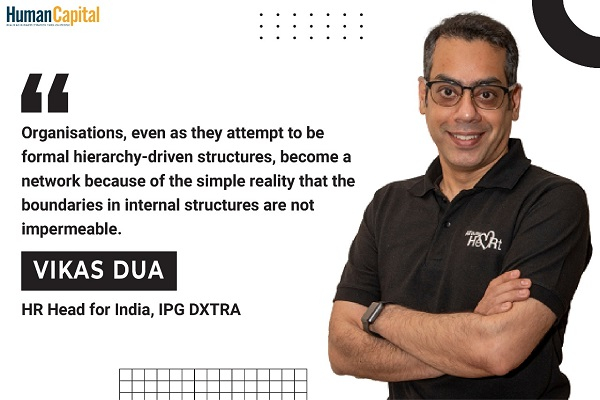Democratising learning is not about giving up control, it is about sharing it. It is about adopting a new mindset, where tools and technology play a key role.
Nearly 2,500 years ago, in Athens, General Pericles, declared the birth of a new kind of governance.
One in which the government is ‘in the hands of the many and not the few’. This was the birth of democracy. The process that transitions a nation state into a fullblown democracy is called democratisation. This term has been liberally used in different contexts. Apple democratised computers, by bringing computing power in the hands of many. Google democratised information by building a powerful search engine.
There has been a resurgence in organisational learning in the post COVID scenario, making the democratisation of organisational learning a reality! Let me explain why. Adam Przeworski, the famous political scientist theorised that democratisation encompasses three processes.
1. Breaking the old regime:
First, the old regime breaks down owing to a loss of legitimacy, or failure. While it is a bit harsh to conclude that organisational learning has ‘failed’, it is apt to say that since 1996, when Peters J wrote about ‘the learning organization’s syllabus’, Google and various other search engines have made it possible to access instant information and data on anything - from productivity hacks to strategies on emerging markets. More importantly, we can add our own voice, usually unmoderated, to these knowledge discussions, or start a brand-new discussion of our own. This in many ways is the end of organisational learning as we know it. People are no longer waiting to congregate in a classroom to learn. They learn when they want, how they want. Just like how people are no longer keen to go to the movies. The movies are ‘coming home’. And like how Netflix is denting the business of multiplex, is Google killing organisational learning?
2. The process of democratisation:
The second process of democratisation, according to Przeworski, involves the ‘construction of a new liberaldemocratic structure and process’. In the case of organisational learning, a ‘liberal’ structure is emerging with the blurring of lines between the learner and teacher, more than ever before. Informal learning through YouTube and Wiki, has meant that the only USP of formal learning is that it leads to a certification/accreditation. But often, the learner is not seeking one. Secondly, the ‘flipped classroom’ has made learners into teachers and teachers into learners, depending on the session being attended. The role of learning professionals has also changed. They are no longer ‘creators’ of content, but ‘curators’ of it. And from facilitating sessions in the earlier era, the learning professional is now managing communities of interest.
3. Democratic consolidation:
The third and final process of democratisation is ‘democratic consolidation’ with the new structures and processes becoming so embedded in everyone’s minds that their removal becomes unthinkable. In the case of organisational learning, this new structure was created with the onset of the digital space. We are seeing an increasing rise in the development of the online communities of practice, where a community of learners come together. Such communities foster mutual engagement, have a shared repertoire of resources, and most importantly, are self-directed and learner-driven. Online communities like Khan Academy, edX, etc. have discussion boards, file sharing, social bookmarks and wikis all integrated into the community. This makes the whole learning process a thriving and collaborative process. This is very different from what was offered by the erstwhile avatars of organisational learning - a ‘one size fits all’, top down approach.
Clearly, the three phases of democratisation of learning have already set in. So, is this the end of organisational learning? Actually, the truth points to the contrary. With the COVID-19 pandemic, we have witnessed an upsurge - a ‘renaissance’ of organisational learning. Organisations want to upskill their people and individuals want to be future ready. Both entities are getting ready for an uncertain future. And learning is taking centre stage.
In many ways, this is a fertile ground for organisational learning professionals and for the function itself to reimagine their roles. However, it will require four important shifts in the way in which L&D operates.
1. From general content to contextualised mentoring: While online learning has brought abundant knowledge resources, it cannot replace the importance of mentoring. Organisations need to invest in the role of a ‘mentor/ buddy’ who can help the learner with the nuances of organisation guidelines and culture. Essentially the things that no online platform can teach. These mentors bring the ‘context’ to the content. They are also role models, which means that they embody the soft skills that can be learnt only on the shop floor, while dealing with real problems and real people. Skills like empathy, trust, critical thinking and what they mean in that particular organisation’s context are the kind of things that this mentor facilitates
2. From controlling to letting go: Sometimes, organisational learning practitioners have thrived because they had the power/control over the learning process. Today, they need to learn to ‘let go’ of that control. This does not mean that they do not need to own the process. They simply need to facilitate the outcomes differently. Consider what happens in ‘learning circles’ today. Learners create a group, they plan their learning and they leave when that learning is complete. This is the concept of the ‘learning gig’! Of course, a strong digital system ensures continuous monitoring, and learners who excel get rewarded and passive ‘bystanders’ are weaned away. But, the monitoring is not on ‘Presenteeism’, but on actual learning!
3. From professor to teaching assistant: Organisational learning professionals must assume the role of the teaching assistant. This is not a downgrade of any kind. It is in fact about developing into a role, where you are more in tune with the learner’s need - providing just in time learning. Enabling the formation of a new habit or behaviour that is critical to your role, this is personalisation of learning in the most unassuming and simple way.
4. From filling the bus to making meaningful bus rides: The final shift that organisational learning professionals must make is to truly believe that the objective of all learning interventions is to further the business objectives of the enterprise. It is not about filling seats or counting the learning hours. It is now about making the ‘bus ride’ (read the learning journey) more meaningful. People can board the bus when they want, get off the bus to explore a new destination, and hop back on the bus when they want to go to another destination.
Democratising learning is not about giving up control, it is about sharing it. It is about adopting a new mindset, where tools and technology play a key role. And learning professionals need to create this ecosystem with a more liberal view- by creating learning which is for the learner and by the learner!
Has COVID-19 forever changed the way we live and work?
Trending
-
SBI General Insurance Launches Digital Health Campaign
-
CredR Rolls Out 'Life Happens' Leave For Its Employees
-
Meesho Announces 30-Week Gender-Neutral Parental Leave Policy
-
Microsoft Unveils Tech Resilience Curriculum To Foster An Inclusive Future
-
60% Indian Professionals Looking For Job Change Due To COVID: Survey
-
SpringPeople And Siemens Collaborate For Digital Transformation Push
-
86% Professionals Believe Hybrid Work Is Essential For Work Life Balance: Report
-
Almost 1 In Every 3 People's Personal Life Affected Due To Work Stress
-
Meesho Rolls Out Reset And Recharge Policy For Employees
-
80% Of Talent Leaders & Academics Say Pandemic Changed Skill Needs For Youth: Report
-
Hero Electric Rolls Out 'Hero Care' Program For Employees
-
Human Capital In Collaboration With ASSOCHAM Hosts Virtual Conference
-
IKEA India, Tata STRIVE Collaborate To Create Employability And Entrepreneurship Opportunities
-
SAP India, Microsoft Launch Tech Skilling Program for Young Women
-
DXC Technology, NASSCOM Collaborate For Employability Skills Program
-
Lenskart To Hire Over 2000 Employees Across India By 2022
-
Mindtree Launches Learn-and-Earn Program
-
Tata AIA Extends 'Raksha Ka Teeka' To Its Employees
-
Swadesh Behera Is The New CPO Of Titan
-
NetConnect Global Plans To Recruit 5000 Tech Professionals In India
-
Hubhopper Plans To Hire 60% Of Indian Podcasters By 2022
-
Corporate India Needs More Women In Leadership Roles: Report
-
Aon to Invest $30 Million and Create 10,000 Apprenticeships by 2030
-
Tech Mahindra Launches ‘Gift a Career’ Initiative for Upskilling of Youth
-
40% Women Prefer Flexible Working Options in Post-COVID World: Survey
-
3 out of 4 companies believe they can effectively hire employees virtually: Report
-
Vodafone , CGI and NASSCOM Foundation launch digital skills platform
-
Odisha: Bank, postal employees to deliver cash for elderly, differently-abled persons
-
Skill India launches AI-based digital platform for "Skilled Workforce"
-
Hiring activity declines 6.73% in first quarter: Survey
-
70% startups impacted by COVID-19 pandemic
-
Bajaj Allianz Life ropes in Santanu Banerjee as CHRO
-
Over 70 Percent MSMEs look at cutting jobs to sustain businesses
-
93 Per Cent employees stressed about returning to office post-lockdown
-
Johnson & Johnson India announces family benefits for same gender partners
-
Indian firms turning friendly towards working mothers
-
Welspun India names Rajendra Mehta as new CHRO
-
Wipro partners with NASSCOM to launch Future Skills platform



Human Capital is niche media organisation for HR and Corporate. Our aim is to create an outstanding user experience for all our clients, readers, employers and employees through inspiring, industry-leading content pieces in the form of case studies, analysis, expert reports, authored articles and blogs. We cover topics such as talent acquisition, learning and development, diversity and inclusion, leadership, compensation, recruitment and many more.
Subscribe Now













































Comment